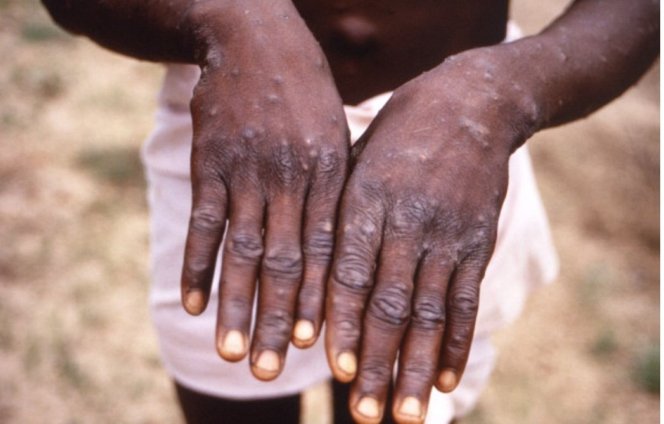Mpox Alert Heightens As Ashanti Region Tests 10 Suspected Cases

Health authorities in the Ashanti Region have intensified surveillance efforts for Mpox, amid growing national concerns over the disease, even though no confirmed cases have been recorded in the region to date.
The Ghana Health Service (GHS) has placed the region on high alert as part of a broader national strategy to contain the virus.
Speaking at a media briefing in Kumasi, the Ashanti Regional Director of Health Services, Dr. Fred Adomako Boateng, revealed that ten suspected cases have been tested so far—all of which returned negative results.
“Currently, we have recorded some cases of Mpox in the country. In the Ashanti Region, we have tested 10 suspected cases, but all of them came back negative,” Dr. Adomako Boateng stated.
He explained that due to the nature of Mpox transmission—primarily through close physical contact—health professionals must conduct thorough clinical examinations, including of private and less-visible areas where early symptoms may appear.

“Because Mpox is transmitted through close physical contact, we urge clinicians to examine areas such as the groin and other inner parts of the body where rashes may be present but not visible elsewhere,” he advised.
Dr. Adomako Boateng also warned that individuals with underlying health conditions face a higher risk of developing severe symptoms, urging the public to manage any existing medical issues proactively.
“People with other health challenges are more likely to develop severe forms of Mpox. So it’s important to stay on your medications and keep those conditions in check,” he said.
Although Ghana is not currently using any Mpox vaccines, he assured that systems are in place to manage potential cases. Health facilities have been directed to establish designated isolation areas to prevent cross-infection.
“We’ve issued an alert to all hospitals and clinics. Every facility must ensure it has an isolation area so that any suspected Mpox case can be separated from general outpatient departments,” he noted.
Public health officials continue to monitor the situation closely and are urging the public to report any suspicious symptoms promptly and avoid close contact with anyone suspected to be infected.
Credit: Emmanuella Ewurabena Acquaye




